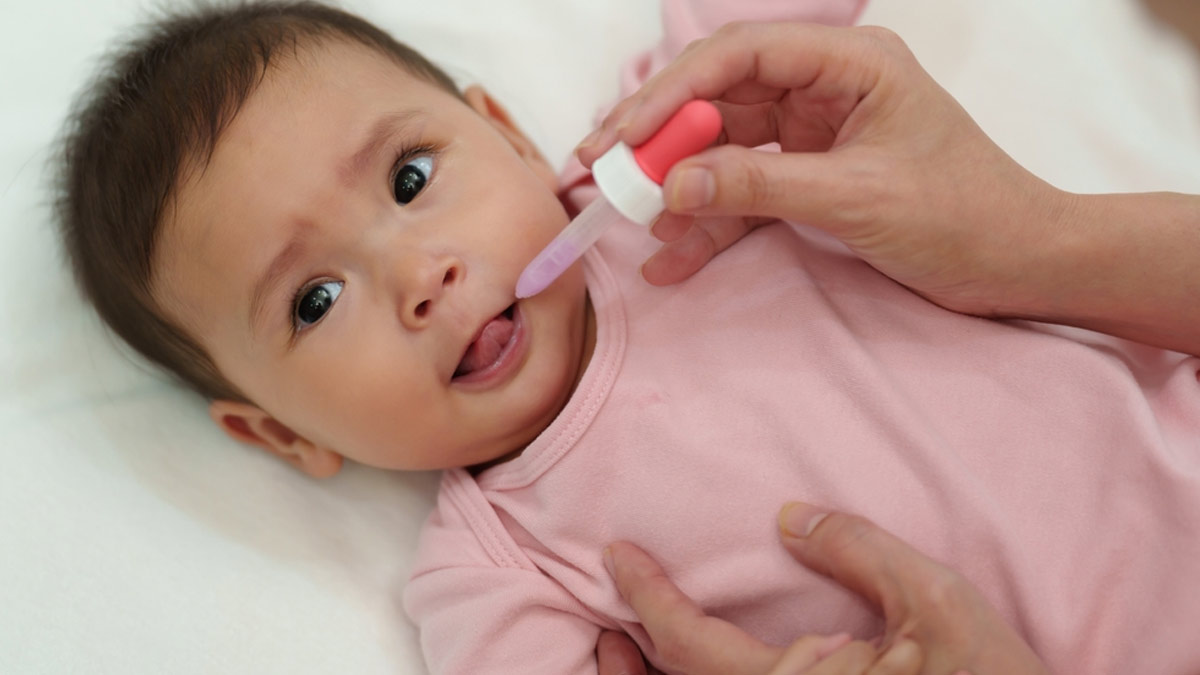
Sleep is precious for both parents and children, especially for new parents who often find themselves sleep-deprived. At night, their primary wish is for their child to fall asleep on time, allowing them some much-needed rest. In pursuit of this, many parents resort to over-the-counter melatonin supplements for their kids. However, the safety of giving melatonin to children is a topic of growing concern and debate among healthcare professionals.
Table of Content:-
To understand whether melatonin is safe for kids, OnlyMyHealth interacted with Dr R Kishore Kumar, Neonatologist and Paediatrician, Cloudnine Group of Hospitals, Bengaluru.
According to Dr Kishore Kumar, sleep is a habit that needs to be nurtured from day 1 in babies by parents. If a sleep pattern is not encouraged during infancy, most children will start having sleep problems. “As a rule of thumb, most babies need to be fed every four hours during the daytime and night time they can go without a feed for 7 to 8 hours - this simple understanding and knowledge needs to be spread among new parents - who keep feeding their babies through the night - causing them not develop a sleep habit,” he explained.

Based on their sleep pattern, it is important for parents to 'train' their babies to sleep through at least for 8 hours in the night. This, according to Dr Kumar, will enable babies to get enough rest and also "grow" properly.
Given its influence on sleep, synthetic melatonin is often used as a supplement to aid sleep. While melatonin supplements are widely available and commonly used by adults, their safety and efficacy in children are subjects of ongoing research and debate. Subsequently few studies used this in children with autism or behavioural disorders who wouldn't sleep. But Dr Kumar said, “It is not something that has received widespread approval among Paediatricians." Understanding the potential benefits and risks associated with melatonin use in children is essential for parents and caregivers considering this option.
Also read: Melatonin May Help Improve Sleep But Is There A Risk Of Overdose?

1. Consult a Paediatrician: The first and most critical step before giving melatonin to a child is consulting a paediatrician. A healthcare professional can provide personalised guidance based on the child’s specific health needs, sleep issues, and overall medical history. “Self-prescribing melatonin without professional advice can lead to inappropriate dosing or overlooking underlying health conditions that might be contributing to sleep problems,” Dr Kumar warned.
2. Short-term Use and Effectiveness: Some studies suggest that melatonin can be effective for short-term use in children, particularly those with certain conditions that disrupt sleep, such as autism spectrum disorder (ASD), attention deficit hyperactivity disorder (ADHD), or specific sleep disorders. In these cases, melatonin has been shown to help initiate sleep and improve overall sleep duration. For instance, children with ASD often experience sleep difficulties, and melatonin has been found to be beneficial in improving sleep onset and quality in this group.
3. Dosage Considerations: The appropriate dosage of melatonin for children can vary widely, and it is typically recommended to start with the lowest possible dose. Dr Kumar said, “Paediatricians usually advise starting with doses as low as 0.5 to 1 milligram, administered 30 to 60 minutes before bedtime. Over-the-counter melatonin supplements can vary in strength and purity, so it is crucial to use a product recommended by a healthcare provider to ensure the child receives a safe and effective dose.”
Also read: Should You Really Take Melatonin Without A Doctor's Approval?
Potential Side Effects
While melatonin is generally considered safe for short-term use in children, it is not without potential side effects. Some reported side effects include drowsiness, headaches, dizziness, and agitation. Dr Kumar explained, “There are also concerns about the long-term effects of melatonin use in children, particularly regarding its impact on puberty and hormonal development. Since melatonin influences the body’s hormonal regulation, prolonged use could potentially interfere with normal developmental processes, although more research is needed to fully understand these effects.”
Prioritise Behavioural Approaches
Before considering melatonin, non-pharmacological approaches to improving sleep should be prioritised. “Establishing and maintaining a regular sleep schedule, creating a calming bedtime routine, and ensuring a sleep-conducive environment are foundational strategies for promoting healthy sleep habits in children,” Dr Kumar recommended.
Melatonin can be useful for managing sleep difficulties in children, particularly when used for short-term relief in specific conditions. However, its use should always be guided by a paediatrician to ensure safety and appropriate dosing. While melatonin is generally safe for short-term use, potential side effects and the lack of long-term safety data warrant caution. By carefully considering these factors and consulting with a paediatrician, parents and caregivers can make informed decisions about the use of melatonin for their children.
Also watch this video
How we keep this article up to date:
We work with experts and keep a close eye on the latest in health and wellness. Whenever there is a new research or helpful information, we update our articles with accurate and useful advice.
Current Version